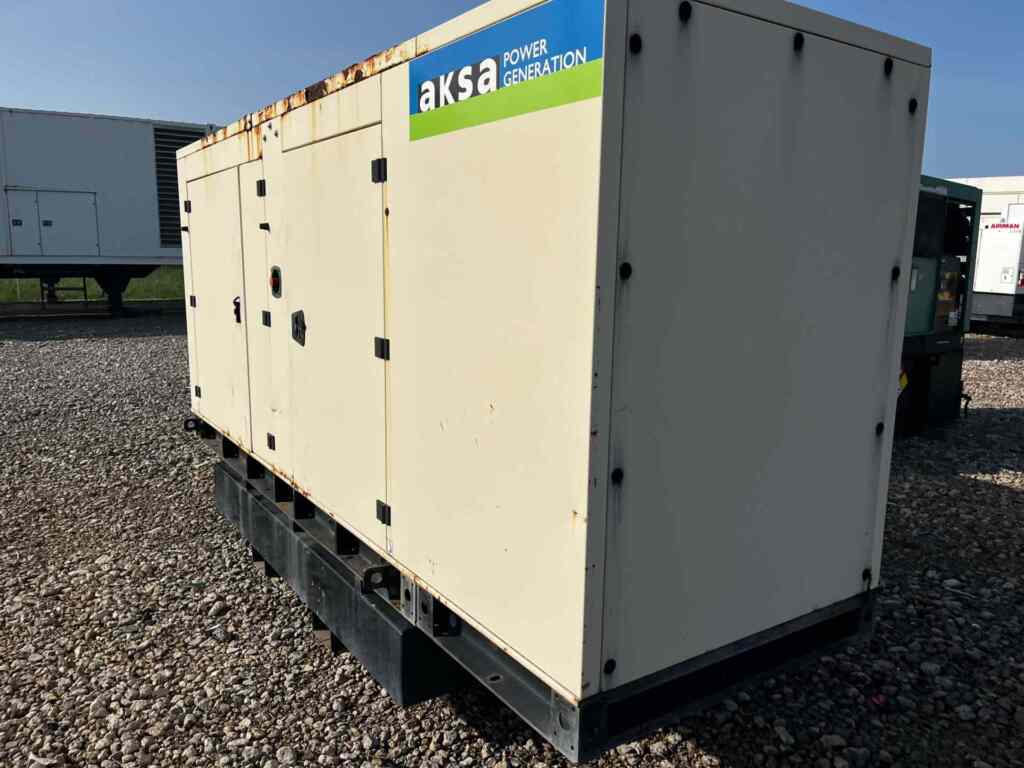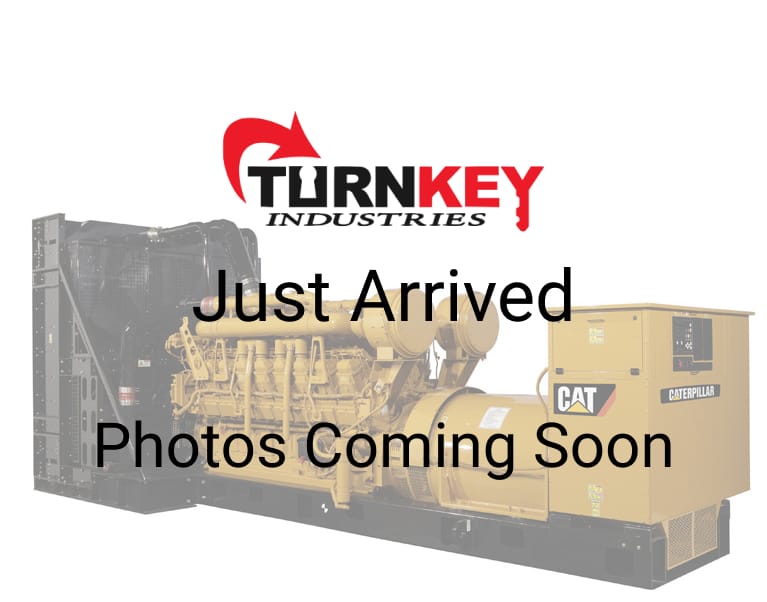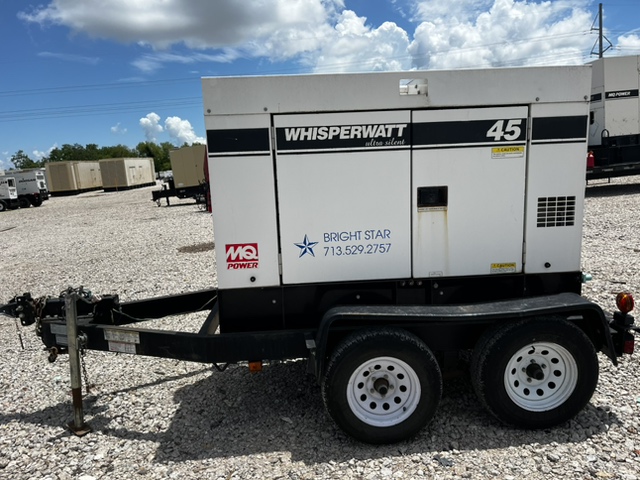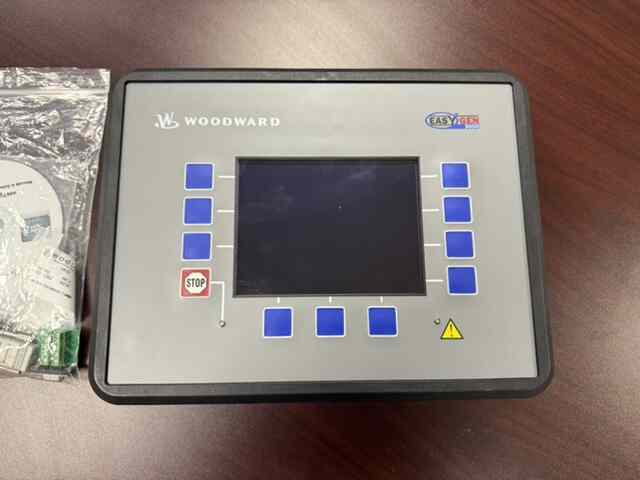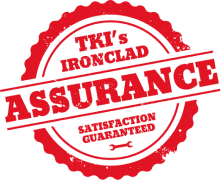When the power goes out, data centers – whether commercial or industrial – can’t afford to go dark. These facilities are the backbone of modern businesses, from small enterprises to large corporations, storing and processing crucial information 24/7. Even a brief power loss can cost companies thousands of dollars and harm their reputation. That’s where data center generators come in, providing vital backup when the main power supply fails.
Power Needs for Commercial and Industrial Data Centers
Data centers require substantial power to operate, with needs varying based on the type and size of the facility. Here’s a breakdown of typical power use for different types of centers:
| Data Center Type | Typical Power Use |
| Small Commercial | 100 – 500 kW |
| Medium Commercial | 500 – 1,000 kW |
| Large Commercial / Small Industrial | 1,000 – 2,000 kW |
| Medium Industrial | 2,000 – 4,000 kW |
| Large Industrial | 4,000+ kW |
These power requirements highlight why robust backup generators are critical for both commercial and industrial data centers. Even smaller commercial data centers need generators capable of producing hundreds of kilowatts to ensure uninterrupted operations during power outages.
Why Data Center Generators Matter
Data center generators are crucial for keeping businesses running. They offer several key benefits:
- Non-Stop Power: Generators start within seconds of a power outage, minimizing downtime.
- Data Safety: Constant power prevents data loss or damage that can happen during sudden shutdowns.
- Equipment Protection: Steady power keeps sensitive IT equipment safe from damage caused by power fluctuations.
- Meeting Rules: Many industries require data centers to have backup power to follow regulations.
- Customer Trust: Reliable uptime builds a company’s good name and keeps customers confident.
The cost of a single power loss is huge. A study by the Ponemon Institute found that data center downtime costs about $9,000 per minute. This high price shows how important reliable backup power systems are within this industry.
Types of Data Center Generators
Data centers use different types of generators, each with its own benefits:
Diesel Generators
Diesel generators are the most common in data centers. They’re reliable and start quickly, reaching full power in 10-15 seconds after a power outage. However, they produce more emissions than other types, so it is important to consider local regulations before purchasing one.
Natural Gas Generators
Natural gas generators are becoming more popular. They’re cleaner and often cheaper to fuel. Plus, they can get a constant fuel supply through pipelines. The downside is they may take longer to reach full power compared to a diesel generator.
Bi-Fuel Generators
These generators use both diesel and natural gas. This gives them flexibility and lets them run longer during extended power outages. They’re more complex and expensive than single-fuel generators, but offer the benefits of both fuel types.
For commercial data centers, which are often smaller and may have stricter noise and emissions requirements due to their urban locations, natural gas generators or smaller diesel generators with advanced emissions control systems are popular choices. Industrial data centers, which may be larger and located in less populated areas, often opt for larger diesel generators or bi-fuel systems for maximum power output and extended run times.
Data Center Generator Costs
The price of a data center generator is a big factor for businesses. Several things affect the data center generator cost:
- Power Output: Generators that produce more power cost more.
- Fuel Type: Diesel generators usually cost less upfront than natural gas generators.
- Backup Level: Having extra generators for backup (like N+1 or 2N setups) increases costs but makes the system more reliable.
- Setup: Professional installation, including fuel tanks and electrical equipment, adds to the total cost.
- Upkeep: Ongoing maintenance costs should be part of the budget.
Generator prices can vary, but here’s a general range for data center generator costs:
| Generator Power Output | Estimated Cost Range |
| 500 kW – 1 MW | $100,000 – $300,000 |
| 1 MW – 2 MW | $300,000 – $600,000 |
| 2 MW – 3 MW | $600,000 – $1,000,000 |
| 3 MW+ | $1,000,000+ |
These are rough estimates and can change based on specific needs and market conditions, as well as installation costs.
Choosing the Right Size Generator
Picking the right size generator for a data center is important. If it’s too small, it won’t provide enough power during outages. If it’s too big, it wastes money and runs inefficiently.
Key factors to consider when sizing a data center generator include:
- IT Equipment Power Use: How much power all servers, storage devices, and network equipment use.
- Cooling Needs: Power required for air conditioning and ventilation.
- Lights and Other Systems: Power needed for lighting, security systems, and other facility operations.
- Future Growth: Expected increase in power needs due to expansion or new equipment.
- Backup Requirements: Extra capacity needed for N+1 or 2N redundancy standards.
A common rule is to size the generator at 1.5 to 2 times the total IT equipment power use. This accounts for cooling and other systems. However, it’s best to get a professional assessment for accurate sizing.
Generator Maintenance and Testing
Regular upkeep and testing are vital to ensure data center generators work reliably when needed. A comprehensive generator maintenance program can extend the life of a generator to 20-30 years, providing excellent value for the investment.
Important maintenance tasks include:
- Oil and Filter Changes: Usually every 250-500 hours of use.
- Fuel System Checks: Making sure fuel quality is good and looking for leaks or contamination.
- Battery Care: Checking and replacing batteries as needed.
- Coolant System Inspection: Checking coolant levels and condition.
- Load Bank Testing: Simulating full power use to ensure the generator performs well.
The frequency of generator maintenance depends on factors like generator type, usage, and environment. Most data centers perform weekly no-load tests and monthly load tests to ensure generators are ready for action when needed.
Environmental Considerations
As data centers aim to be more environmentally friendly, the impact of backup generators is getting more attention. Key points include:
- Emissions: Diesel generators produce more pollutants than natural gas generators. Many areas have strict rules about generator emissions.
- Noise: Generators can be loud, requiring sound-reducing measures, especially in cities.
- Fuel Storage: Proper fuel storage and handling are crucial to prevent environmental contamination.
- New Technologies: Some data centers are looking at alternatives like fuel cells or large battery systems to reduce environmental impact.
The EPA’s Tier 4 emissions standards for diesel engines have led to cleaner, more efficient generators. Many data centers are upgrading to these newer models to meet environmental rules and company sustainability goals.
However, power isn’t the only environmental concern in data centers. Innovative water quality monitoring systems play a crucial role too, optimizing cooling processes to further reduce environmental impact while maintaining operational efficiency.
Future Trends in Data Center Backup Power
Data center backup power is changing rapidly. Some new trends include:
- Mixed Systems: Combining generators with large battery systems for better efficiency and fewer emissions.
- Renewable Energy Use: Using solar or wind power along with traditional backup generators.
- Smart Grid Tech: Allowing data centers to adjust their power use based on grid demand and potentially sell extra power back to the grid.
- Flexible and Scalable Options: Generator systems that can easily grow as data center power needs increase.
- Advanced Monitoring: Using Internet of Things (IoT) and artificial intelligence (AI) to predict and prevent generator problems.
These new ideas aim to make data center backup power systems more efficient, reliable, and environmentally friendly.
Finding the Right Data Center Generator Solution
Choosing the right generator for your data center is crucial for reliability and efficiency. At Turnkey Industries, we specialize in providing high-quality new and used generators for data centers and other industrial applications.
Whether you’re running a small commercial data center or a large industrial facility, Turnkey Industries has the expertise to help you find the right generator. We understand the unique needs of both commercial and industrial applications and can provide solutions tailored to your specific requirements.
Our expertise includes:
- Wide selection of generator brands and capacities.
- Assistance in selecting the right generator for your needs.
- Thorough inspection and testing of all generators.
- Nationwide and international delivery.
With over 10 years of experience, we offer generators from top brands like Caterpillar, Cummins, and Multiquip. Our generators undergo rigorous testing to ensure reliability.
Protect your data center’s critical operations with a generator from Turnkey Industries. Contact us today to find the ideal backup power solution for your facility.
 Turnkey Industries offers a variety of high-capacity
Turnkey Industries offers a variety of high-capacity 